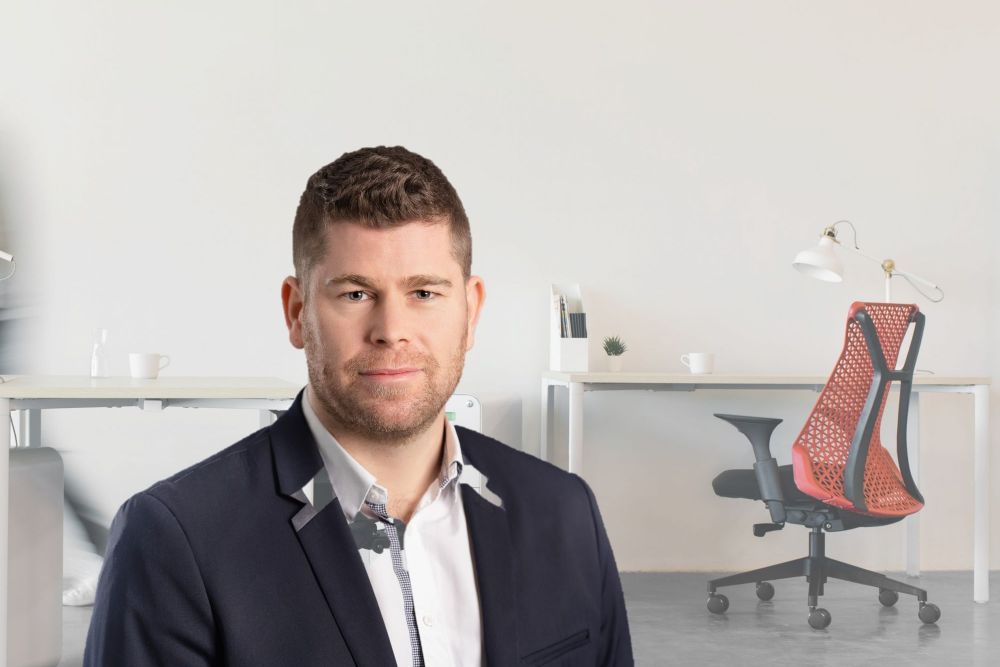- Home
- EN
- Kardham Group
- News
Open space, flex office, creative spaces: Kardham challenges conventional wisdom on new workspaces
June 2023

What if real estate professionals and employees themselves were harboring preconceived notions about workspace design? They say that open spaces encourage communication and collaboration. That so-called "creative" spaces decorated in bright colors boost employee innovation. But what's the reality? Nicolas Cochard, R&D Director at Kardham, sets out to challenge conventional wisdom and certainties about office design in a summary entitled "10 preconceived ideas about new workspaces".
Getting rid of incantatory promises and other prejudices about the office of tomorrow
This summary is based on scientific research carried out by psychosociologists and management science researchers, as well as on feedback from numerous space transformation projects. At a time when the acceleration of telecommuting, collaborative working and the employee experience are prompting companies to rethink their real estate strategy, Nicolas Cochard analyzes the actual behavior of employees in the workplace. His summary also provides concrete, useful solutions for companies wishing to embark on a workspace transformation project.
Focus on 5 of the 10 preconceived ideas that prevent us from taking a step back from this central issue.
1 - Decompartmentalizing encourages communication and collaboration: removing office partitions would create more social links. Yet studies show that employees adopt such a "sanitized" attitude in open spaces that the opposite is true. So how can we design spaces that really encourage interaction?
2 - Workspaces help attract talent: this idea could not be more common at a time when companies are multiplying initiatives to attract candidates, particularly those from Generation Y. And yet, to date, no feedback has been forthcoming. And yet, to date, there is no feedback to suggest that office aesthetics and designer furniture are criteria in their choice of future employer. Does the workspace really play a role in attracting and retaining talent?
3 - Tomorrow's office will be used exclusively for collective work: with the spread of telecommuting, the office will be used exclusively for meetings. This idea, too, is not based on any tangible evidence, since it has been shown that employees' needs for greater concentration or, conversely, interaction, vary according to the job and task in hand. Thus, the role of the office is variable and needs to be rethought according to cultural context, activity, management and company organization.
4 - Open spaces are noisy: open spaces are always criticized for being noisy, especially by employees, a perception that is difficult to explain, even though the noise measured in open spaces is quite low in terms of db. Between physical discomfort and cognitive disturbance, what is the real reason why employees reject open spaces?
5 - The unassigned office dehumanizes the worker: the flex office calls into question the traditional scheme borrowed from a Taylorist vision of work: "one job = one place = one desk". Once this has been explained, it becomes clear that the fear of losing one's physical place is more closely linked to the fear of losing one's social place. For companies, the challenge is to get employees to rethink work collectively, rather than individually.
"Since the health crisis, the question of workspaces has been the subject of much reflection, and the least we can say is that many of the players in this transformation, first and foremost organizations and their employees, are a little lost. We offer this summary with the aim of raising everyone's awareness of the need to take a step back when dealing with workspace issues. Giving in to fads and spreading preconceived notions about the harmful effects of certain types of design - sometimes justified, often exaggerated - is not the way to go about it. The ultimate goal is to arrive at the idea that, beyond macro-trends and the cause-and-effect links often too easily put forward, only a contextual approach nourished by serious literature and duly analyzed feedback from experience will enable us to think properly about the future of working environments", Nicolas Cochard, R&D Director at Kardham.

